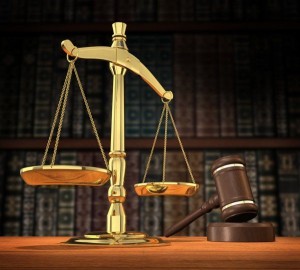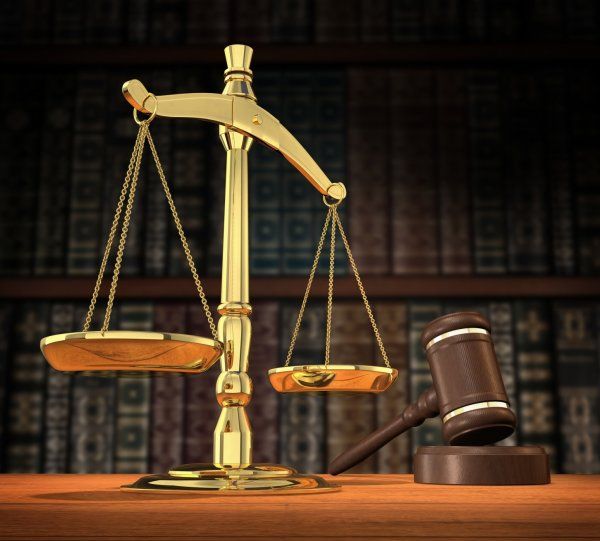 The Cairo Institute for Human Rights Studies is deeply concerned by the ruling of the Cairo Court of Urgent Matters, issued on Tuesday, 6 May 2014, which bars former members and figures of the dissolved National Democratic Party from running in the upcoming People’s Assembly elections. This contravenes international human rights standards and violates a previous ruling issued by the Supreme Constitutional Court on 14 June 2012, which found Article 1 of Law 17/2012 amending the law on the exercise of political rights —known as the Political Isolation Law— unconstitutional. That law was passed by the Muslim Brotherhood after the group won a majority in the People’s Assembly.
The Cairo Institute for Human Rights Studies is deeply concerned by the ruling of the Cairo Court of Urgent Matters, issued on Tuesday, 6 May 2014, which bars former members and figures of the dissolved National Democratic Party from running in the upcoming People’s Assembly elections. This contravenes international human rights standards and violates a previous ruling issued by the Supreme Constitutional Court on 14 June 2012, which found Article 1 of Law 17/2012 amending the law on the exercise of political rights —known as the Political Isolation Law— unconstitutional. That law was passed by the Muslim Brotherhood after the group won a majority in the People’s Assembly.
This ruling is not the first of its kind, but rather a new link in a chain of actions by which the Court of Urgent Matters have arrogated the authority of other courts and judicial bodies by issuing rulings that exceed the limits of its jurisdiction. Since 30 June 2013, the Cairo Court for Urgent Matters has issued rulings in cases that fell within the purview of the criminal courts, including rulings banning the activities of the April 6 Movement and the Muslim Brotherhood and designating Hamas as a terrorist organization. It also issued a ruling mandating the return of security guards to Egyptian university campuses, although in 2008 the Administrative Court ruled to shut down all university guard offices on campus run by the Interior Ministry and barred any Interior Ministry personnel, uniformed and plainclothes, from operating on campus or university facilities. On 15 April 2014, the Alexandria Court for Urgent Matters issued a ruling barring Muslim Brotherhood members from running in presidential and parliamentary elections.
Such rulings issued by the Court for Urgent Matters exceed this court’s authority, which is limited solely to adjudicating urgent civilian matters, as this court is civilian in nature, provided also that their rulings do not prejudice the disputed claim. All the rulings noted above, with the exception of the one on campus security, which falls within the purview of the Administrative Court, are related to criminal matters that require prior investigations and thus fall within the jurisdiction of the criminal courts.
Rulings of this kind by the Court of Urgent Matters renders their implementation meaningless and without legal basis. In turn, they contravene one of most important constitutional principles set forth in Article 188 of the 2014 constitution, which designates judicial bodies as arbiters in all disputes and crimes, with the exception of matters falling in the jurisdiction of specific judicial bodies.
These rulings, issued to appease public opinion, will encourage numerous parties to turn to the Urgent Matter Courts seeking rulings that fit their political inclinations and help them settle scores with political opponents. The courts that issue these rulings are helping to undermine justice and the rule of law.
The CIHRS stresses that judicial bodies must comply with the authority vested in them by law. Issuing rulings beyond their jurisdictions raises a number of problems with implementation. While the purpose of court orders and rulings is that they be implemented, illogical rulings are impossible to implement legally, and as such erode the stature of the judiciary, and undermine confidence in the justice system.
The CIHRS reiterates the need to hold to account those persons who committed human rights crimes, whether during or after the Mubarak period, in order to uphold justice and the rule of law and to guarantee that such crimes will not be committed again. The CIHRS affirms, however, that this process must proceed on a sound legal basis to be credible. The successive rulings issued by the Court for Urgent Matters erode faith in the justice system, primarily in the judiciary itself.
The CIHRS urges the Supreme Council for Judicial Bodies to take action to reinstate respect for the rule of law and to put a stop to this judicial chaos. The Institute also calls for an end to the growing politicization of the judiciary which has been used by all regimes and political actors to settle accounts with opponents and to prevent accountability for perpetrators of human rights crimes.
Share this Post

